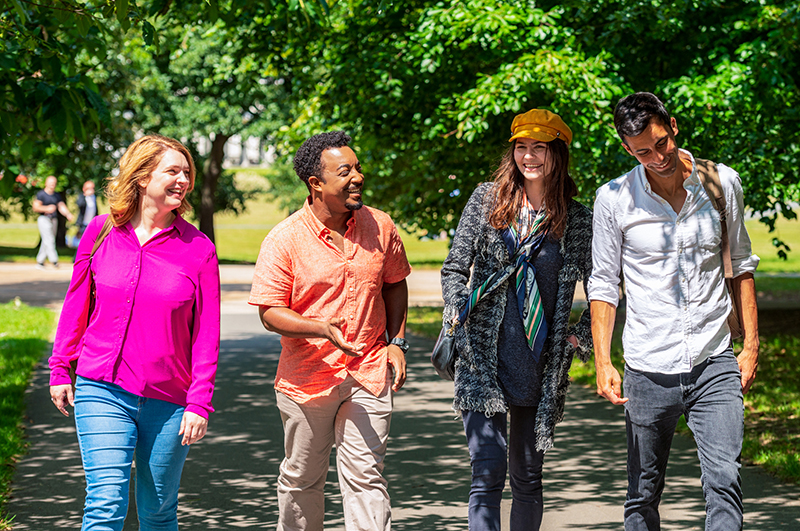People who remain members of clubs and societies throughout their lives tend to have a higher daily step count and exercise more in their mid-40s, according to new findings from the 1970 British Cohort Study (BCS70).
The UCL-led research found that people who participated in formal social activities from adolescence to midlife – such as youth organisations, evening classes, sports clubs and residents’ associations – were more active at age 46 than those who had never joined clubs and societies.
Lead author, Stella Tsoli (UCL, Harvard University and London School of Economics) said: “Many studies have shown how staying socially connected can help people’s mental health and wellbeing. Using objective data collected from activity monitors, our new research is one of the first to highlight just how valuable social participation can be for people’s physical health. We find that sustaining social connections encourages healthier lifestyles in midlife. As a result, staying social could be a vitally important lever for healthy ageing.”
Researchers examined information from more than 3,600 participants born in Britain during one week in 1970, who are taking part in BCS70. They looked at data on people’s participation in a range of clubs and societies at ages 16, 30, 34 and 42. They then examined data on people’s daily step count and levels of moderate to vigorous physical activity collected from activity monitors, which cohort members were asked to wear as part of the Age 46 Biomedical Sweep.
People who reported being members of clubs and societies at three or more timepoints had 6% higher average daily steps and spent just over 30 minutes longer exercising per week at age 46, compared to those who had never joined a formal club.
Even adults who were club members at just two timepoints tended to be more physically active than their counterparts who never had these kinds of formal social connections. They recorded 4.9% higher average daily steps and spent an additional 28.5 minutes engaging in moderate to vigorous physical activity per week.
The report found that membership of clubs and societies dropped during certain stages of life, most probably reflecting work and family commitments. For example, just under 50% of people attended clubs and societies in their mid-teens, with rates falling to just 30% at age 30. They increased again to 52% at age 34 and then peaked at 60% at age 42.
In a separate analysis, the study’s authors investigated whether there were any specific ‘sensitive’ timepoints when having formal social connections helped people form habits of physical activity that lasted into midlife. They found that only recent membership of clubs and societies made a difference to levels of physical activity at age 46.
Tsoli added: “Our study finds that the more socially engaged people are over their lives the more physically active they are in midlife. This research also provides evidence on the importance of sustaining social participation across the life course rather than at a particular period of life.
“Participating in social activities or societies is likely to help increase physical activity in a variety of ways. There is an obvious direct effect for people needing to leave their home to participate in any club and society, as when this generation was in their mid-40s, participating in social groups online was not as common as it has recently become. However, it may be the case that people become more physically active through sharing knowledge and promoting positive healthy behaviours with each other while being part of these groups.
“Increased physical activity can help to prevent chronic disease, which enables greater independence in older adults. As people age it will be important for them to be able to connect with others to not only meet their practical, social and emotional needs but also for their physical health.”
Further information
‘Life-course social participation and physical activity in midlife: longitudinal associations in the 1970 British Cohort Study,’ by Stella Tsoli et al was published in March 2024 in the European Journal of Epidemiology website.





